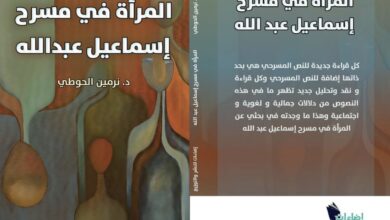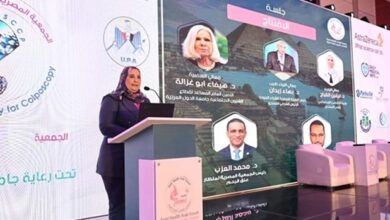I closely followed the discussion on Al-Masry Al-Youm’s website between columnists Ahmed Samir and Amr Ezzat on Islamic Sharia rulings that concern women in the new constitution. And since I insist that we give our attention to those matters we are made to be distracted from — and as a citizen whose female gender has led her to have certain rights and duties and to be deprived of others — I want to raise some questions that may help us write a better constitution one day.
First, I would like to say that I agree with the overall content of Ezzat’s article. For as we write a new revolutionary constitution, we should keep in mind that the strength of nations is now measured by how well they treat their marginalized citizens. Are the poor, followers of other religions, disabled, unemployed, pregnant women, elderly, children and patients given rights that guarantee they lead a decent life or not?
Such nations do not follow the law of the jungle where the stronger survives at the expense of the weak. To the contrary, they place a greater value on sense and mercy, just as Prophet Mohamed did when he opened Mecca and became stronger in the political balance of power. Why can we not follow that example today?
Creating awareness
In his book, the “Pedagogy of the Oppressed” which caused several countries to change their school curricula, Brazilian scientist Paulo Friere helps us understand the reasons why. A person who had been oppressed in a closed relationship cannot be automatically expected to be merciful to his old oppressed colleagues or play a role in liberating them when he or she is granted some power. On the contrary, this person will most likely oppress his colleagues like he was oppressed before.
To escape that destiny, we should get engaged in what Freire calls the “conscientization” process, which is to become conscious of why we are caught in that circle of oppression. We should ask ourselves whether one’s skin color, class, gender or religion makes it inevitable for him or her to receive a certain kind of treatment and be granted, or deprived from, certain rights and duties. Conscientization helps us ask who benefits the most from that circle of oppression and what roles the oppressor and oppressed play in creating the knowledge that justifies the continuation of oppression.
All of us in post-revolution Egypt need to enter into that process of creating awareness, particularly as we write our new constitution. I repeat: all of us.
My question is: If we have decided not to act similarly to the above mentioned nations, rather, to let those who think they are stronger take over on the pretext of abiding by religion, then why do we insist on sticking to an oppressive understanding and version of religion? Why is it that we think that in order to follow religion correctly, we need to have oppression and inequality? Why is it that whenever a sheikh or priest or rabbi preaches and fuels discrimination and oppression, we grant him greater respect and see him as closer to God? Are those qualities really encouraged by your God and mine? We know that the answer is an emphatic no.
The problem, like I said before, is that of oppression, which all of us Egyptians have been subjected to. This is also the problem with how some view Sharia rulings.
Sharia and Jusirprudence
As we have been taught before, Sharia is supposed to be the divine message which does not change with time or place, aiming to help people lead a better life in this world and in the afterlife. Jurisprudence, on the other hand, is the continuous human effort to understand and implement this divine message.
For jurists to understand the divine message, they developed the Science of Usul al-Fiqh, the sources of jurisprudence, which consists of the rules and tools, such as qiyas, or analogy, which are used by jurists to elicit rulings from the Quran and Sunna.
Therefore, those rulings are a human effort to understand the divine will. This effort is essentially influenced by the development, or lack thereof, in various fields of life.
The Islamic ruling on post-term pregnancy, for instance, would have been different had the knowledge we have now been available to classical jurists. Jurists in the four schools of Sunni jurisprudence had agreed that the shortest period of pregnancy is six months but they differed on the longest pregnancy, with some saying it is one year and others putting it at four. Under this ruling, a child born three years after his father's death would still be declared his son with subsequent inheritance rights. Are we ready to follow this ruling today?
There is another ruling which gives a father the right to marry off his prepubescent daughters. Several scholars agree that a father has the right to marry off his daughter without soliciting her consent. They only disagree on whether her approval is necessary when the female in question has reached the age of puberty. Today, knowing the associated physical dangers and the fact that several fathers have their daughters married off to rich men from the Gulf to make money, do we still want this ruling to remain in post-revolution Egypt?
Enhancing imagination
The point I want to make is that those classical jurists have done their utmost within the limits of the knowledge they had at the time and succeeded in producing rulings, some of which can still be followed, while others need to be reviewed in light of new developments.
Samir pointed out certain rights and obligations that are supposedly based on religious rulings, which for him rightfully stand in the way of achieving equality between men and women. These include unequal inheritance shares between men and women, a husband’s unilateral right to divorce and polygamy, as well as his obligation to financially maintain the wife.
I want here to give some examples that might widen our imagination, while at the same time not to deny religion its ability to come closer to establishing equality. For instance, in some Muslim majority countries like Libya and Algeria, divorce has to take place in court and a husband cannot unilaterally divorce his wife to avoid the incidence and ills of unregistered divorces..
Morocco has promulgated what they term "divorce for discord," based on the Quran, whereby both the husband and wife apply for divorce due to disagreements they have. The judge would grant the divorce and order the payment of compensation to the aggressed party, even if that is the man.
Polygamy — the incidence of which is already decreasing due to economic conditions and the change in society’s perception of it — has been conditioned in several countries, such as Jordan, Syria, Algeria and Morocco.
Regarding inheritance, Egypt came up with the creative idea of the "obligatory will" to allow a grandson whose father dies in the life of his grandfather to receive inheritance, which would have otherwise not been possible if inheritance rulings were applied literally in a closed manner.
These examples show that Sharia does not have to be synonymous with inequality for it to be “authentic.” There is ample room for coming up with creative solutions that help us come closer to equality if only we nurture that kind of awareness, which resists oppression and discrimination and encourages equality and freedom.
However, concerning nafaqa, or financial maintenance, we do have a serious problem. We know that today women are the sole breadwinners in a third of Egyptian households, and in the remaining two thirds they almost inevitably have to share in household expenditure in light of the grinding economic conditions. Wives also share in household maintenance by doing the housework for free, because by doing this they save money that was otherwise going to be paid to purchase those services. According to Islamic jurisprudence a wife is not obliged by the Islamic marriage contract to do housework, rather, she is obliged to ensure her sexual availability to the husband.
We are also aware that court rulings issued in favor of women obliging husbands to pay maintenance do not get implemented in Egypt today. So, which maintenance are we talking about here that women supposedly enjoy and for which social class exactly?
The Singaporean Muslim Family Law sought to solve this problem by giving a divorced Muslim wife at least one third of the wealth accumulated during the marriage, excluding money and real estate inherited by either spouse. This allocation is subject to increases commensurate with the wife’s expenditure during the marriage, in order to protect her and her children's rights.
A new book titled "The End of Men and the Rise of Women," released in September 2012, is causing quite a stir in the West today. The book discusses the increasing difficulties men face in carrying out their expected “protective and breadwinning” roles due to global capitalism, which leads to the closure of factories and layoffs as businessmen scramble to make more profits. Women then find themselves in a position where they have to accept any job to provide for the needs of their families. Hence, they eventually become the chief breadwinners and may advance in their careers. Is that not a form of oppression of both women and men who had not chosen that course of life originally?
My problem, your problem
Do we not see that when women in this country suffer so do men and vice versa? Do we not see how all problems are intimately linked and hence there is no point in marginalizing women's problems? Do we not recognize that at the end of the day my problem is essentially your problem too?
Classical Muslim jurists did not witness these changes in spousal roles and problems when they produced their rulings. Anyone studying Islamic law today knows that Islamic jurisprudence currently faces an epistemological crisis, particularly when it comes to women. This is largely because Islamic jurisprudence, with its classical knowledge and assumptions, is facing new realities. Contemporary jurists, however, do have the tools of Usul al-Fiqh that they need for better interaction with reality. But, first we have to exhibit willingness to reject oppression and inequality and rid ourselves of fear.
It remains for us to know that throughout history, and before the establishment of the modern state, the Islamic legal system was a flexible one actively interacting with reality. Differences in legal opinions were normal and seen as a mercy. It was a system that refused to have one guardian dictating to all what Sharia should be for everyone in order to protect itself and the religion it represents from authoritarianism. It was a living system that breathed with its society and therefore respected it. But when we tried to enclose the Islamic legal tradition in rigid, positive laws, which were issued by elected parliaments on the basis of limited constitutional articles, it lost its ability to breathe and adequately answer to people's needs.
However, and until we succeed in addressing such developments, some are suggesting that the new constitution today should only refer to the “principles,” rather than the ‘rulings’ whenever Sharia is mentioned.
I do not know if this is a solution or not, but I am presenting it here for discussion.
What I do know is that after the revolution we deserve much better than what we are offered now in the draft constitution. I also know that not so long ago, in January 2011, we all firmly believed that my problem is your problem and, once upon a time, we were actually prepared to give our lives for that.
Follow the debate in Arabic between Ahmed Samir and Amr Ezzat.




